5. Amadeus (1984)
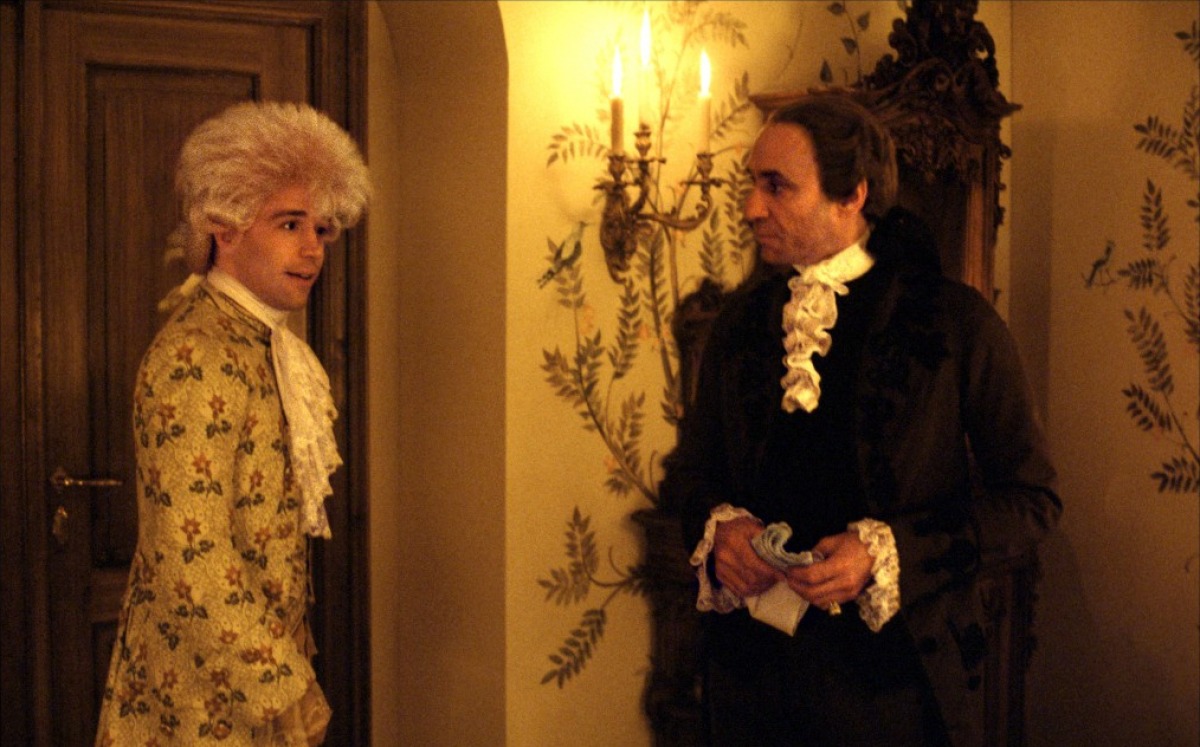
Miloš Forman’s second winner is a film that breaks the wall between fiction and reality (maybe not nearly as drastically as Shakespeare in Love, mind you). Amadeus is the hyperbolized tale of how Antonio Salieri led Wolfgang Amadeus Mozart to his death.
In reality, Salieri was not jealous of Mozart’s success; in fact, the two got along decently well. In the context of this film, however, the hatred is believable, as the construction of his wrath is gradually put together through each and every step forwards.
Mozart is played comedically by Tom Hulce (just try and get that infectious laugh out of your head), yet his dramatic chops are nothing to ignore. It is F. Murray Abraham’s Salieri that steals the show, ironically, as it was Salieri that wanted to be recognized for his efforts.
The basic plot is strong enough. It is when Amadeus begins to go into surreal territory that it becomes a piece of cinematic brilliance. When Salieri drapes himself in a dark cloak with the face of death and haunts Mozart, you will see a musical opera performed metaphysically and vicariously through its creator.
Regardless of whether or not Amadeus tells the complete truth is irrelevant, because its result is viciously powerful. The fact that the title is based off of Mozart’s middle name and yet its content is still immediately recognizable should be a testament as to how big the undertaking of this story must have been, and Forman’s bold decisions ultimately win in the end.
4. Terms of Endearment (1983)
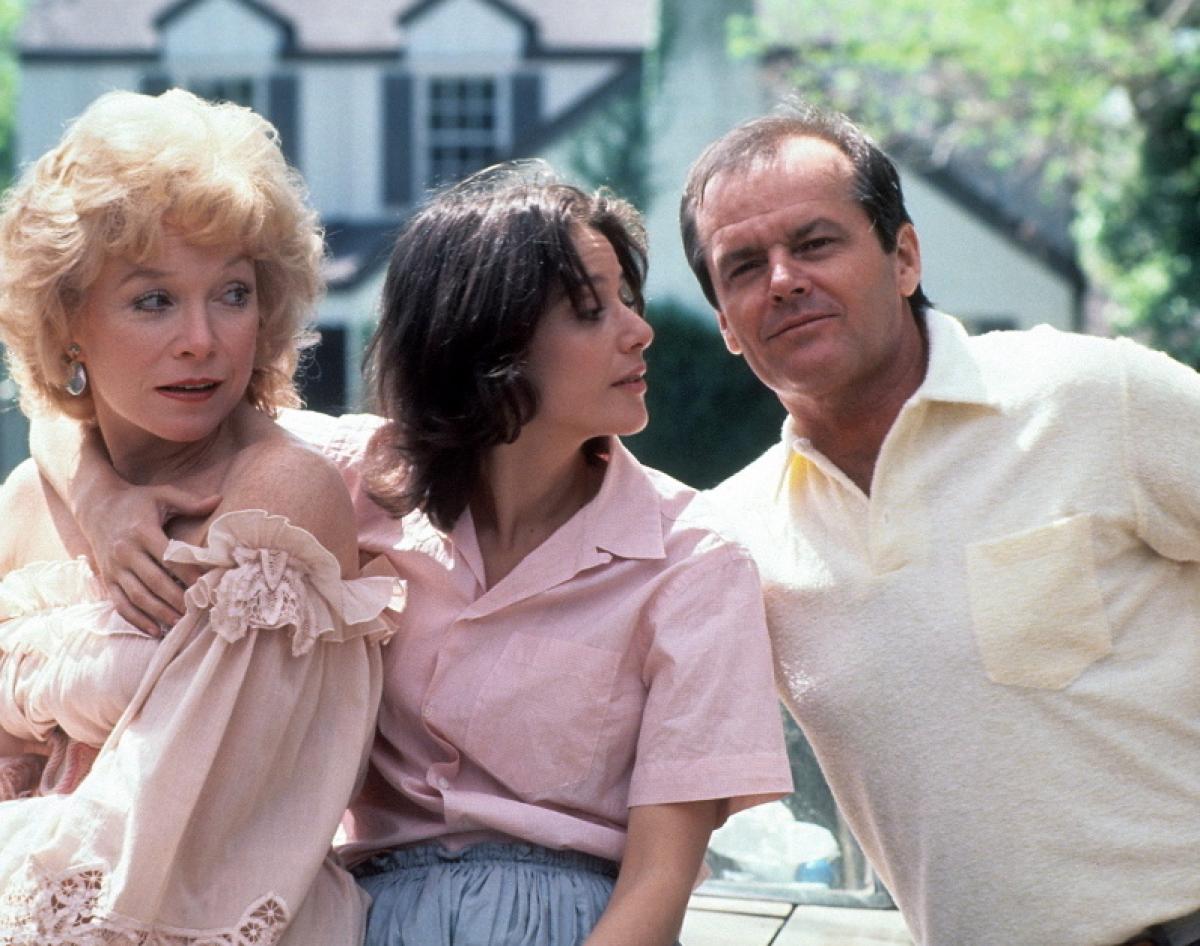
It is time to examine another Best Picture winner that is circled only around the depths of everyday life as opposed to some of the more extravagant topics that get covered with these films.
Terms of Endearment is a strong winner because of its ability to shock you in a way that only the swirling currents of life can. You do not get shocked by a monster or humoured by a superhero. You spend decades with a family that get by on familiar arguments, put up with common household issues and eventually reach the awful miseries that we think could never happen to us (and yet, here we are).
James L. Brooks has always been a great identifier of the kinds of discussions and scenarios that make us human, and his directorial debut here is one of his finest assessments on human nature. Shirley MacLaine and Debra Winger are a fantastic mother-daughter pairing with rumbling chemistry that is a significant sign of both positive and negative reactions at work.
Terms of Endearment is heavily a product of the ‘80s, but its tales are timeless. Every scene is a significant moment in the lives of the Greenways, and it is a statement that life is strung together with the memories we depart with.
3. Ordinary People (1980)
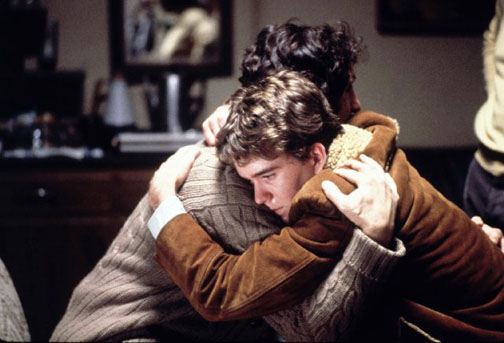
One of the unjustly despised Best Picture winners of all time, Ordinary People continues to get a bad wrap even to this day solely because it beat Raging Bull for the grand prize. Raging Bull is an American film masterpiece, of course, that fully deserved the prize.
Ordinary People is not an awful film as a result of Raging Bull’s loss, however. Robert Redford’s touching take of sadness and depression is tastefully done, expertly dealt with, and a celebration of passionate acting. Ordinary People is a study on characters who battle their own inner demons as they fight with each other, and a hypothesis on whether or not this is always fixable.
Donald Sutherland is a great boulder that attempts to support his family and also stay out of causing trouble as much as possible. Timothy Hutton, the newcomer, is the grieving son that struggles with suicidal tendencies hourly, as the world refuses to completely understand him; except for Judd Hirsch’s psychiatrist character, where Hirsch plays against type and is a challenging-yet-understanding doctor.
On that note, it is Mary Tyler Moore’s significantly different character that showcases how far these actors went to be out of their comfort zones, as she plays a frigid mother who refuses to let the world in. Ordinary People features extraordinary acting, a strong use of Pachelbel’s Canon, and an effort by Robert Redford that gets shoved aside too often.
2. Platoon (1986)
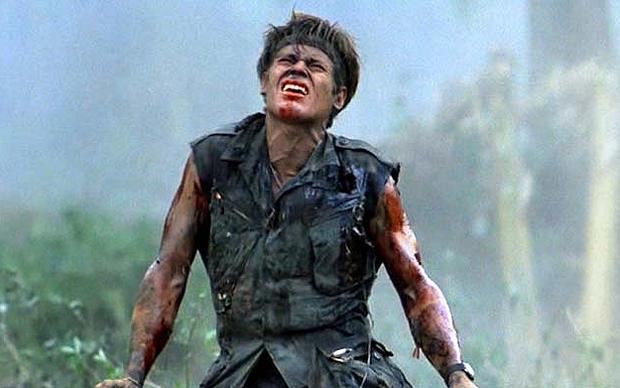
Where has Oliver Stone’s talent been at as of late? He has not had a film that showcases his caliber of poise since Born on the Fourth of July. In all honesty, he never truly topped off Platoon: the harrowing tale of shell shock that is developing in the minds of the soldiers in Vietnam.
Everyone knows the image of Willem Dafoe collapsing to his knees, as it has been shared time and time again in various forms of pulp culture. What does not get spread around is the devastation that carried that scene and, for that matter, the entire picture. The fire and explosions behind the falling Sergeant is an act of betrayal, a surrender to corruption, and a proclamation of the lies within the war.
There is also the downtime, where soldiers interact and become friends and/or foes. You see these very men get slaughtered, huddle in fear, and drenched in freezing rain. You witness war crimes, mutiny, mass hysteria and psychosis kicking in. You do not see much in terms of the lives back at home waiting on these men, but you know they have loved ones waiting for them.
You just experience the war, which is what these fighters will most likely be unable to shake from their memories. Oliver Stone never reached this level of mastery again, but it is near impossible to capture lightning in a bottle more than once.
1. The Last Emperor (1987)
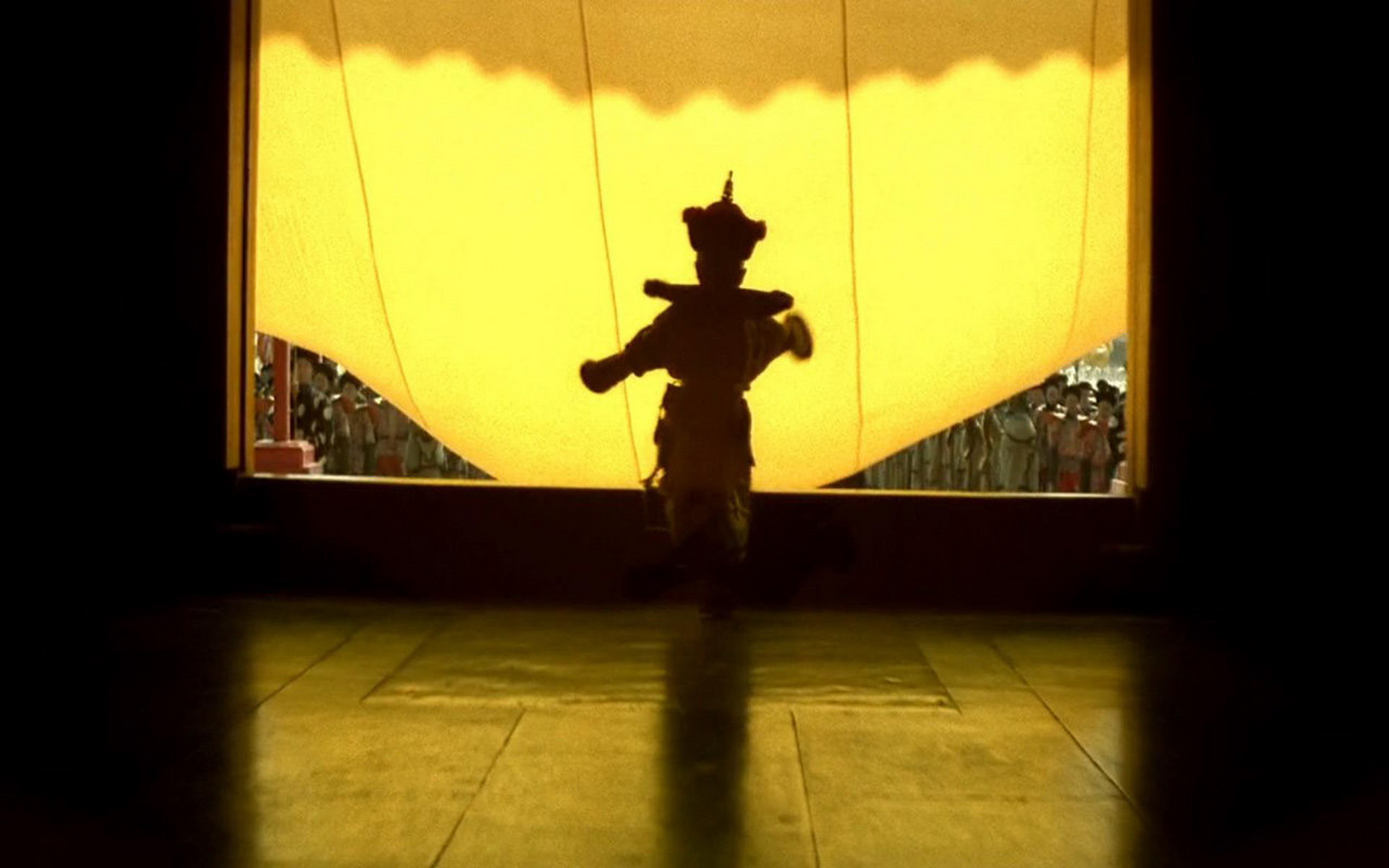
This has to be the most underrated Best Picture winner out there. The Last Emperor is almost never brought up in any Oscar discussion, unless it is being referred to as a questionable win. Bernardo Bertolucci’s historical epic is only a peculiar win because of what odds it went up against.
It was a long art house piece that featured bizarre scenes of excrement, orgies and ritualistic deaths. These unusual moments are part of what makes The Last Emperor unique, because we are planted in an atmosphere we truly don’t get at first. It’s the best way to be transported to the Forbidden City as an outsider.
The back-and-forth from Puyi’s past and present is colour-coded. His youth as an emperor is full of red and gold, while his adulthood as a prisoner is dismal and grey. The music by Ryuichi Sakamoto, Cong Su and David Byrne (a mixture of cultures in itself) sticks with Puyi throughout his entire life.
We witness many historical events from the inner and outer walls of The Forbidden City, and the different cultural movements that went along with them (the rise of opium dens, the spark of Communism and more). The Last Emperor may not be the most straightforward Best Picture winner, but it is usually not given the light it so rightly deserves.
Rankings of other decades:
Pre-1950 Best Picture Oscar Winners Ranked From Worst To Best
1950s Best Picture Oscar Winners Ranked From Worst To Best
1960s Best Picture Oscar Winners Ranked From Worst To Best
1970s Best Picture Oscar Winners Ranked From Worst To Best
Author Bio: Andreas Babiolakis has a Bachelor’s degree in Cinema Studies, and is currently undergoing his Master’s in Film Preservation. He is stationed in Toronto, where he devotes every year to saving money to celebrate his favourite holiday: TIFF. Catch him @andreasbabs.